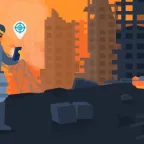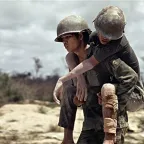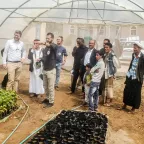Being accountable to people affected by armed conflicts
… committees, hospitals, National Societies, weapon bearers, lawmakers, local media, etc.). … needs and making operational decisions autonomously. J. Labbé and P. Daudin, …
… committees, hospitals, National Societies, weapon bearers, lawmakers, local media, etc.). … needs and making operational decisions autonomously. J. Labbé and P. Daudin, …

… of experts on the use of such conventional weapons as may cause unnecessary suffering or … Draft report, revised version, fragmentation weapons 17.10.1974-17.10.1974 B AG 059-337.09 Draft report, future weapons 18.10.1974-18.10.1974 143 ACICR …

… principles and IHL, primarily among weapon bearers. The ICRC vaccinated and … training to run and maintain the assets autonomously after the project ends. The civic … selfhelp processes that were undertaken autonomously by the community. In the current …

… du docteur Marcel Junod : ''Warrior without weapon'' dans le journal ''The Economist'', … of experts on the use of such conventional weapons as may cause unnecessary suffering or … Draft report, revised version, fragmentation weapons 17.10.1974-17.10.1974 B AG 059-337.09 …
Try one of the following resources:
Created in 1863, the ICRC library, alongside the ICRC archives, provides an indispensable documentary reference on the organization itself and international humanitarian law.
International humanitarian law is based on a number of treaties, in particular the Geneva Conventions of 1949 and their Additional Protocols, and a series of other instruments.
Customary international humanitarian law consists of rules that come from "a general practice accepted as law" and that exist independent of treaty law.